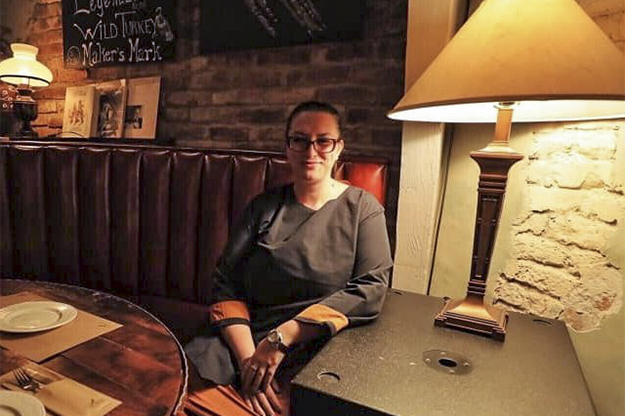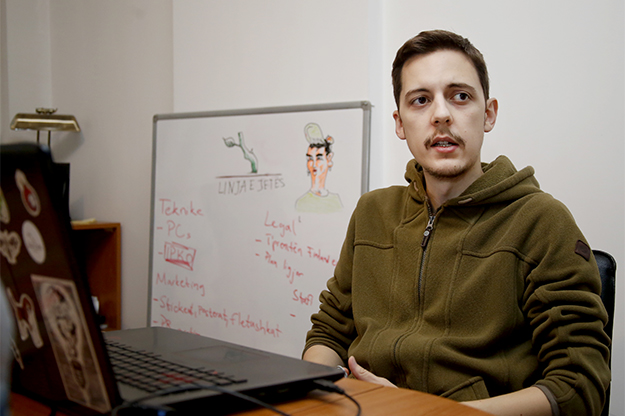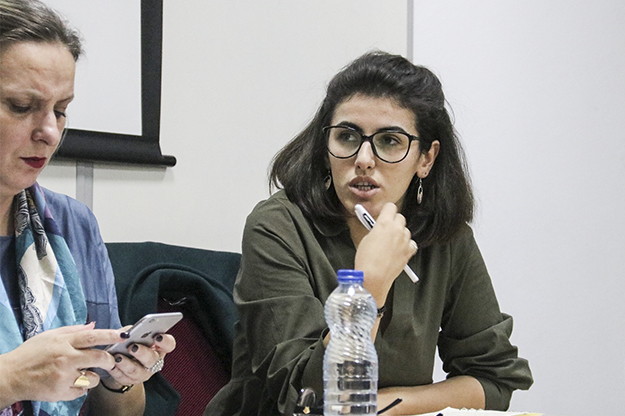On November 16, 2002, the city hospital in Foshan, China admitted an unusual patient. Although he exhibited symptoms typical to pneumonia — fever, cough and breathing difficulties — the usual treatment was unsuccessful. Chinese authorities reported the disease as an “atypical pneumonia” three months after the appearance of this “patient zero.”
In February 2003, a doctor who had treated a patient with atypical pneumonia not too far from the city of Foshan travelled from China to Hong Kong. On the way there, he experienced a fever and cough; contaminating the elevator and corridors of the hotel he was staying at with droplets of saliva, at least 16 other people were also infected.
From there, the disease known as Severe Acute Respiratory Syndrome, abbreviated as SARS, would spread to 26 countries around the world. The culprit was a previously unknown virus that would later be called SARS-CoV.
Since a vaccine was not available, isolation was the only way to prevent further transmission. In July 2003 — eight months after the appearance of patient zero — when the dispersion of the disease was brought under control, the WHO reported on the aftermath: 774 had died from the disease and eight thousand were infected.
However, these were not the only consequences. While the virus was spreading, researchers at the University of Hong Kong analyzed the stress levels of patients infected by SARS and observed that recovered patients had higher stress levels than usual. The same high levels were also reported one year later, when researchers repeated the test with the same patients.
The research also found that one year after battling the virus, the levels of depression, anxiety and post-traumatic stress disorder (PTSD) among SARS patients were much higher than the population average. The conclusion was that the isolation and anxiety caused by the virus had long-term consequences on mental health in affected areas.
Another study conducted in Canada — which was also affected by this virus — researched the psychological effects in people who were under lockdown. The study found 31% of them showed symptoms of depression, while 29% had symptoms of PTSD.
Today, the world is dealing with another previously unknown virus, which, like SARS-CoV, is part of the coronavirus family. On March 11, 2020, the WHO assessed the global danger that SARS-CoV-2 posed and declared the COVID-19 disease — which is caused by the virus — a pandemic.
The number of worldwide deaths caused by the new coronavirus has exceeded 100 thousand, while over 2 million are currently infected. At least one third of the world’s population is under lockdown.
***
Prishtina’s streets, which until recently roared with traffic, are now virtually empty. You can seldom spot a passer-by in the desolate boulevards. This has been the picture across the whole country for a month now.
Since March 13, when the first two cases of people with the infection were confirmed in Kosovo, the whole country has been practically put under lockdown by a series of measures taken by the government. All bars, cafes, restaurants, malls and markets have been closed; only pharmacies and grocery stores remain open.
Orgesa Arifi’s everyday life in Prishtina has changed a lot since she began self-isolating a month ago. During this time, she has only left the house for essential groceries; these outings, however, have become a source of anxiety for her. She feels a mixture of disgust and fear when she sees people without protective equipment, including those who do not respect physical distancing.
Health is the primary concern for the 27-year-old — more than for herself, she says,she is worried about her parents. “I am afraid because of their age and the fact that we as a society are underestimating the risk that this virus poses,” Arifi says.
Another serious concern for her during this time is emotional stability; she recalls that the initial lockdown period was especially challenging. “There were times when I felt bad emotionally during this time — I would turn back time and think about how little I have valued people and the places that I have had the chance to visit,” she says.
Arifi tries to stay active as much as the space between her four walls allows. As a designer, she continues to work from home, and she says that reading, watching movies and cooking have helped her keep her mind off the anxiety that this crisis has given rise to. In spite of her efforts, she often finds herself lost in a state of desperation.
Clinical psychology specialist Natyra Agani points out that this dimension of the crisis is not receiving enough attention. “We are entirely focused on washing hands, personal hygiene, oral hygiene, a better diet; meanwhile, we have completely bypassed mental hygiene,” she observes.

Psychologist Natyra Agani considers that mental health is not receiving the necessary attention and care during this time of crisis. Photo courtesy of Natyra Agani.
Regarding the risk of psychological consequences from COVID-19, Agani says that the most vulnerable are those who have a history of mental health issues. For instance, she mentions people with obsessive-compulsive disorder (OCD), who could be negatively affected by the habit of frequent hand-washing.
This anxiety disorder is associated with feelings and thoughts that cause anxiety, consequently forcing individuals to perform certain actions repetitively. One of these compulsive actions could be the frequent washing of hands in order to avoid the risk of being infected.
“These people are preoccupied with worries, and since everybody is talking about it and they see them performing certain actions, this could aggravate their emotional state even further,” Agani says.
On a more general level, clinical psychologist Naim Telaku says that Kosovar society is more sensitive towards crisis situations as a result of the psychological trauma from the events of the war in ’98-99.
“The word trauma means wound, and a wound, especially a psychological one, is not easily healed,” Telaku says. “When you already have a wound, the other one distresses you more because the sensitivity is higher. This explains the society’s reaction, to which the situation often seems similar to the war.”
Challenges after the quarantine
War trauma is cited as one of the factors that has affected the suicide rate after the war in Kosovo. According to data by the Kosovo Police, more than one thousand people have committed suicide since the war; on average, three people attempt and at least one person commits suicide every week in the country.
According to Agani, higher number of suicide cases may come as a result of the COVID-19 crisis.
“Currently, we are only paying attention to the period of quarantine, of isolation. We are not thinking about what will happen after it,” she says. “I have the impression that the number of suicides while in quarantine could be lower because there is more supervision, but we do not know what’s going to happen after it — that’s where the risk lies.”
Agani’s impression is confirmed by Bind Skeja, who manages the “Linja e Jetës” (“Lifeline”) suicide hotline. He says that ever since people were put under lockdown, the hotline has received fewer calls than before.
“The primary reason is that, knowing the economic situation in Kosovo, most people live with their families. People are quarantined, and they need to stay inside, so they cannot call and talk freely,” Skeja says. “They usually fear that somebody is listening to them — when they know that the parents are in the house all the time, the likelihood that they will call is much lower.”

Bind Skeja, founder of Kosovo’s suicide hotline, says that calls have decreased during this time because of the circumstances in which people in Kosovo live. Photo: K2.0.
A few days after the conversation with Skeja, he announced that, due to the small number of volunteers, “Linja e Jetës” — the only one of its kind in Kosovo — has suspended operations until the pandemic subsides.
Meanwhile, the Ministry of Health (MH) along with the Department of Psychology at the University of Prishtina has started an initiative for online mental health counseling. Not long ago, the MH issued a call for volunteers who would offer free counseling for distressed citizens due to the situation caused by the pandemic, or for those who are in need of mental health services.
Political problems intensify uncertainty
Starting early in the morning on Wednesday, April 15, a series of new measures have come into force in Kosovo in order to prevent the further spread of the pandemic. Freedom of movement for most citizens in Kosovo has been limited to 90 minutes a day, which can only be used to carry out essential tasks.
The measures taken by the government resemble the ones instituted by many other European countries. However, Kosovo is distinguished by the toppling of its government in the midst of the COVID-19 crisis.
Through a motion of no-confidence in the government on March 25, the Kosovo Assembly ousted the government coalition between Vetëvendosje and the Democratic League of Kosovo (LDK). The proposed motion was passed with the support of the opposition parties, garnering a total of 82 votes.
The fall of the government caused widespread fear and uncertainty — in response, citizens protested for a number of days in a row by banging on pots and pans from their balconies and windows. The message conveyed through the metallic clangs was simple; political parties ought to shift the focus from political agendas and concentrate on battling the pandemic.
According to Agani, the nightly protests from the balconies did not only express anger and frustration towards politics, but also represented an outpouring of anxiety and uncertainty. Political problems, she says, increase distress among citizens.
“We are first and foremost concerned about the presence of the virus in our country — when you add to this the various social and economic difficulties and, lastly, the political problems, our condition worsens significantly,” she says. “This can contribute to an increase in stress, especially in those who already have a history of mental health problems.”

According to clinical psychologist Naim Telaku, the political crisis in Kosovo has affected an increase of uncertainty among citizens. Photo courtesy of Naim Telaku.
Telaku broaches the unifying role that political leaders need to play in situations of crisis and emergency in order to boost the morale of society. “This stratum is failing terribly here — we had the impression that we could do it together, but this gives us the impression that we are not together, something that harms security,” he says.
The crisis deepens societal problems
While most attention is paid to the response against the virus, civil society has raised concerns regarding the aggravation of existing societal problems, such as domestic violence.
Liridona Sijarina, researcher at the Kosovar Center for Gender Studies (KCGS) says that, considering the trends in other countries, the risk of an increased number of domestic violence cases is real. “Immediate research done in China, the U.S. and the UK have shown that the number of domestic violence reports has increased since the spread of the pandemic,” she says.
The WHO also confirms increased risk of domestic violence during the pandemic. According to them, stress, fading of the supportive effect of social relations as a consequence of distancing, as well as the lack of access to aid services against domestic violence can be factors triggering this increase.
According to Agani, staying in isolation provides an emotional venting channel, which, if not used in a healthy way, can take the form of aggressiveness towards family members. According to her, this risk is compounded by the financial and economic consequences of the virus, which can aggravate the emotional state of individuals.
“Staying inside can increase communication and improve the ability of individuals to verbalize the worries they experience. However, the opposite can also occur; this emotional venting can also take on the form of gendered aggressiveness, and it is even more concerning when it is expressed towards children,” she says.
According to the Kosovo Police, during March — when the preventive measures against coronavirus came into force — 169 cases of domestic violence were reported. Compared to the previous month, there has been an increase in reports by about 12%.

Liridona Sijarina from the Kosovar Center for Gender Studies considers that women are the most vulnerable to various forms of violence. Photo courtesy of Liridona Sijarina.
Sijarina from the KCGS says that given the socio-economic circumstances in Kosovo, women may be the most at risk. “An overview of the socio-economic position of women in society shows that women are a sensitive group, more prone to discrimination and more likely to be victims of various forms of violence,” she says.
The other side of the crisis
Shqipe Gjocaj, a journalist and women’s rights activist, has taken this period of isolation quite positively. As she lives with her partner and daughter, she is taking advantage of the isolation period to spend more time with her family and take better care of herself.
“For me, this is an opportunity to spend quality time with my small family; I play with my daughter every day and I have the opportunity to rest more and longer with her,” she says. “With my partner, we exchange the time we spend alone and share the responsibility of caring for our girl in order to fulfill our work online.”
In addition to her work, she is a yoga practitioner and a regular reader. These activities, she says, help to maintain her mental and physical health.
Similar to Gjocaj, for many other people, this situation can serve to bring relationships closer and increase sensitivity towards each other. Studies from the time of the SARS epidemic corroborate this.
A 2005 study compared human relationships before and after SARS; 28% of respondents said they felt more support from society after the epidemic, while 39% said the same in relation to the family. Also, 35% of them said that they shared more feelings with others after the epidemic, while over 60% said that they cared more about their family members.
The study found that for some people, isolation had increased attention to mental health; 66% of respondents said that now they care more about their mental health, while about 35% of respondents stated that they spend more time for resting, relaxation and exercise.
Even psychologist Agani says that for some people, such as people with mood issues, this situation can have a positive effect. “This could be a very good moment for a person with depression, because they have all their family members at home and this situation can give them an impetus to overcome the aggravated emotional state they are going through,” she says.
However, the positive sides and consequences of pandemic for the mental health of society still remain at the level of hypotheses. One thing is for sure: Our society after the pandemic will not be the same.
***
Three tips for taking care of your mental health during the pandemic
The way people respond to the isolation that accompanies the current situation may differ from person to person. However, there are some general tips that mental health authorities offer, which help maintain emotional stability during the COVID-19 pandemic.
- Keeping in touch with others. In a recently published manual, the World Health Organization advises keeping in touch with family and friends over the phone, social media, video calls, or emails. The same advice is given by the American Psychological Association (APA), explaining that the exchange of feelings with others in times of crisis strengthens the sense of normalcy, consequently reducing stress.
Psychologist Naim Telaku says that strengthening social ties helps maintain social cohesion, which in times of crisis is necessary.
“We as individuals feel too small to face such major problems,” he says. “The power and confidence to overcome them comes when we have a sense of social cohesion; this kind of optimism is necessary in such cases.”
- Careful access to information. Health professionals also advise avoiding excessive information about the virus. The WHO recommends shortening the time spent following news related to COVID-19, while suggesting that information about the virus be obtained from reliable sources.
Furthermore, the APA explains that excessive exposure to any kind of news is detrimental to mental health as it affects the increase in stress. Meanwhile, studies suggest that social media — one of the main sources of information in our time — can cause more anxiety than traditional media.
Psychologists say that most of the news during this period is disturbing, as it speaks of an increase in the number of people affected by the virus, an increase in the number of deaths and the like — all of which can increase anxiety.
“When we get information often, it gains power in our minds. If we are constantly exposed to the news about coronavirus, it becomes a kind of complex in the mind, from which we cannot get rid of then,” Telaku says.
Agani and Telaku suggest that information about COVID-19 should be obtained from official sources such as the WHO, the MH and the National Institute of Public Health. Agani also suggests a plan for obtaining information. “We need to get the information in a certain period of time — for example, at noon, at 3 p.m., at 7 p.m.,” she says.
In addition, Agani raises concerns about the circulation of fake news, which according to her aggravates the emotional state even more during this period.
The Association of Journalists of Kosovo (AGK) has also appealed for responsible reporting during this time. The chairperson of the association, Gentiana Begolli, says that journalists are generally adhering to the principles of fair reporting in relation to issues related to coronavirus, although she does not deny that there have been false reports.
“Accurate and timely information is essential for the organized response of society to this challenge and the prevention not only of the spread of the COVID-19 virus, but also of the panic that may accompany it,” Begolli says. “I think most of our colleagues are managing to fulfill two big responsibilities: report the truth and not cause unnecessary fear to the public.”
- Take care of yourself. Psychologists advise to consider the period of isolation as a period of personal development. Agani suggests that home isolation should be used for activities that the dynamics of normal life do not allow us for lack of time. For this, she says the perspective of how we see isolation needs to change.
“This mentality of ‘we’re in, we’re locked in, we can’t get out’ can be seen from a different perspective; in something like ‘this is the moment when I can focus first on myself, my needs and worries, my desires, and then on my family,’” Agani says. “Nowadays, we don’t have this luxury, because we are busy, the children are in schools and kindergartens, people work long hours.”
Telaku says maintaining a routine is essential during the isolation period. “It’s important to keep some routines we’ve had before: to read a little, to move a little, to do some light physical exercises inside the house. These are highly recommended,” he says.
The WHO also similarly recommends the mental health care manual during pandemics — pay attention to your own feelings and needs. “Engage in healthy activities that you enjoy and that relax you. Exercise regularly, keep a regular sleep schedule and eat healthy,” suggests the WHO.K
Feature image: Arrita Katona / K2.0.






I think it was a wonderful story!